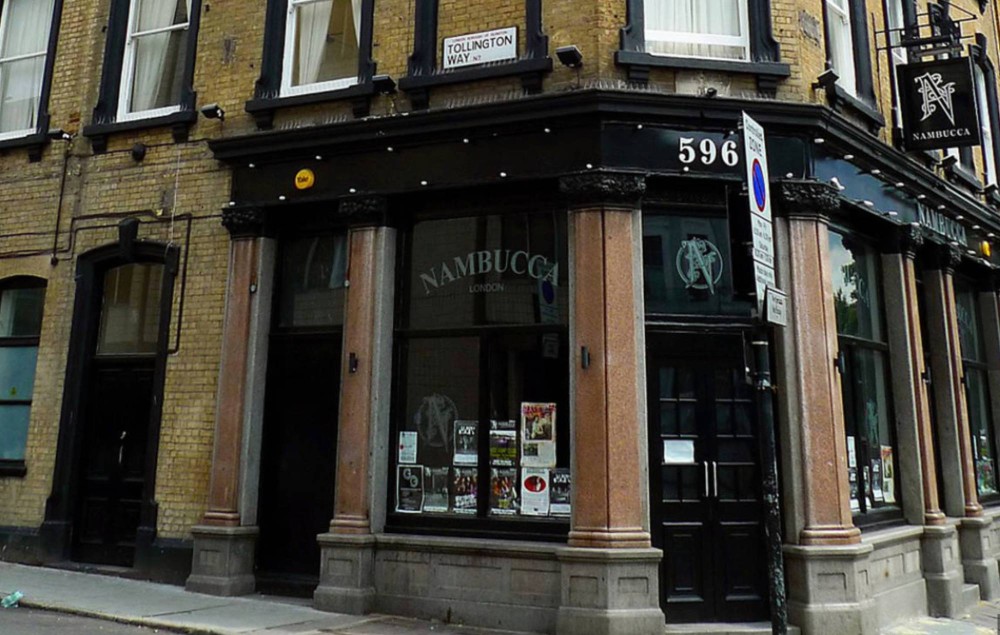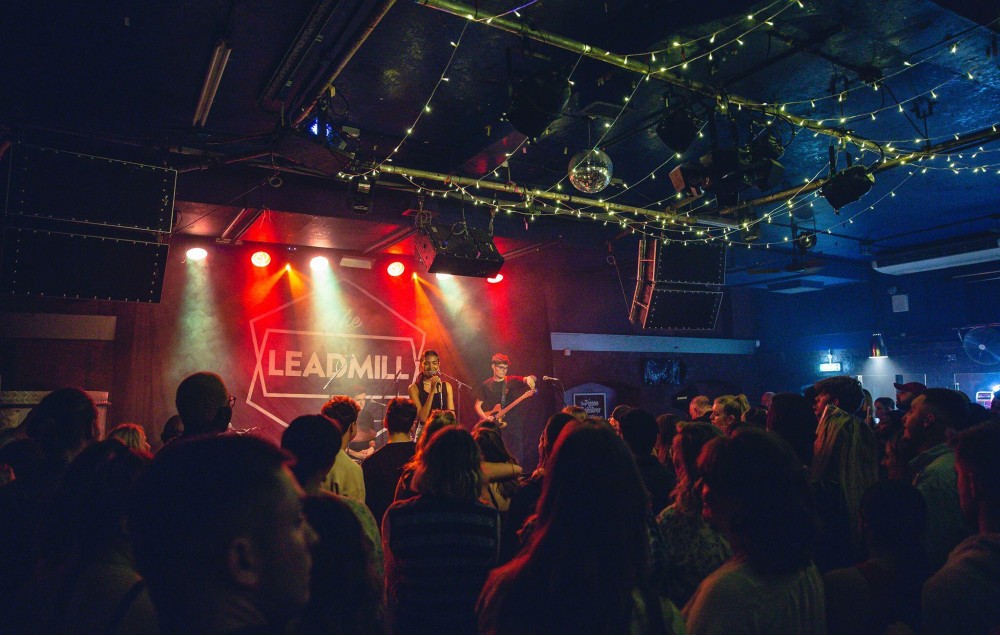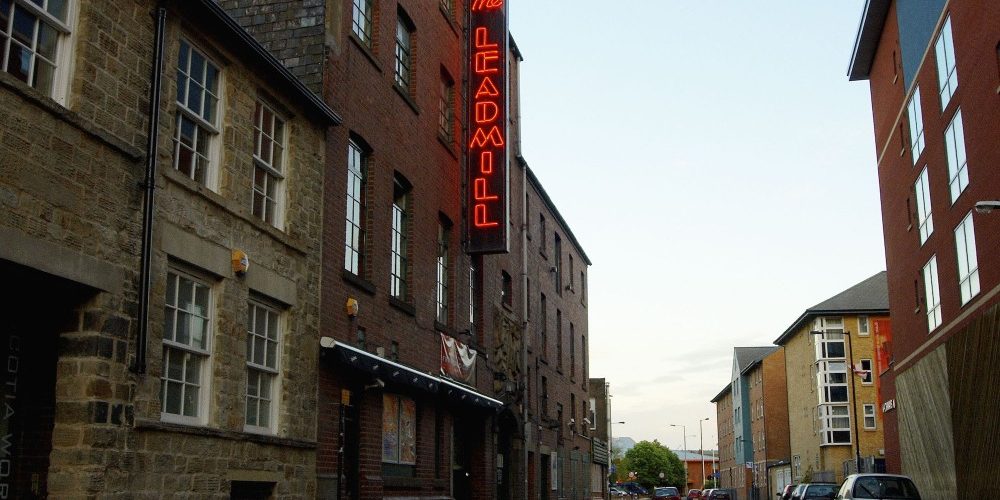With Nambucca closing and The Leadmill under threat, campaigners call for venues to own their buildings
With London’s Nambucca set to close this week and Sheffield’s iconic The Leadmill under threat, the call is growing louder for music venues to own their own buildings instead of separate landlords.
Last month, it was announced that the legendary Nambucca venue on London’s Holloway Road would be closing its doors, having “tried everything they could” to stay afloat. Championing new and upcoming acts, they’ve played host to early gigs from the likes of The Libertines, Florence + The Machine, Frank Turner and Wolf Alice. The venue’s final night as Nambucca will take place this weekend on Saturday (May 14).
In a statement that was issued when the closure was announced, the Music Venue Trust said of the issues facing the UK’s grassroots gig spaces: “Gentrification, development, noise, rent demands, excessive charges, poor working conditions, there are so many challenges. However. everything we deal with eventually comes back to the same core problem. That problem is ownership.
“Like 93 per cent of music venues in the UK, this venue operator does not own the venue. If they did, Nambucca would not be closing. It’s that simple.”
View this post on Instagram
Speaking to NME, Nambucca’s general manager Giles Horne agreed that venue operators owning their own buildings would solve many of their issues.
“I don’t blame the pub companies that own Nambucca,” he said of the upcoming closure. “They’re running a business and want to make as much money as they can. We need to buy these venues back from these pub companies because they don’t care where they’re getting their money from – they just want a pub open at 10am and to be churning beer out all day. That makes sense as a business model, but it makes it very difficult for music venues that are trying to operate.”
He continued: “It would be great if venues could be owned by venues and run as venues, and less tied to beer sales, which make things even less profitable. I just hope that someone buys Nambucca and continues to keep it as a venue.”
Horne said that when the COVID pandemic first hit, he didn’t think that Nambucca would ever re-open – even going as far to find another job while the venue was closed. However, the venue reopened in July 2021 to his “great relief and surprise”, before the reality of operating in post-COVID times became apparent.
“Everybody thought that there would be a massive honeymoon period for live music when we reopened,” he said. “There just wasn’t, and it took a long time to bounce back. Right now, it feels like things are coming good again – but we had mounting utility bills, bills from the pub co, bills from every direction. It all came too little too late and it became untenable. It’s been a flipping nightmare.”

Sharing advice for other live music venues weathering the storm in the post-COVID world, Horne urged them to “keep plugging away”.
“I think venues will find a way to continue,” he continued. “They’re too important not to and there are too many people that are passionate about keeping them open. It is hard work. For young bands and musicians it’s more challenging. I’ve been lucky to see so many amazing bands, but they just won’t get the exposure that they need without these venues. We need to keep all of these different scenes alive.”
Horne added: “I live my life in a bubble, and Nambucca is my bubble. I have tunnel vision about everything around it. It’s been encouraging to hear so much support and tales of what Nambucca means to so many people. It’s terribly sad. Frank Turner has called up to say how sorry he is, we’ve had the likes of Wolf Alice come up through here, and it’s just a crying shame. I just hope that someone buys it to keep it as a venue.”

One of the more high-profile venues under threat as of late has been The Leadmill in Sheffield. Back in March, the landmark venue and club told music fans of the “devastating news that in one year’s time, our Landlord is trying to evict us, forcing us to close” – leading to an outpouring of upset and support from the music world.
The current bosses of The Leadmill then responded to their owners, who denied that they have intentions to close the venue. Leaders of Electric Group, the company who bought the freehold for the site in March 2017, claimed that they’d be removing the current management, but keeping the building as a music venue following renovations.
Electric Group CEO Dominic Madden – whose company also own London’s Electric Brixton, the SWX nightclub in Bristol and NX Newcastle – told his Twitter followers that “the management may change but the song stays the same”. Along with Madden, Electric Group is a joint venture with Jake Lewis of the Lewis Family, who run retailer River Island along with hotels, property development and asset management businesses.
The current management then hit back, arguing that they were being “exterminated by the landlord”. It also emerged that Electric Group had registered the trademark ‘Electric Sheffield’ back in February.
Arctic Monkeys, Richard Hawley, Jarvis Cocker and Bring Me The Horizon’s Oli Sykes are among the Sheffield artists to have spoken out in support of the venue – with local figures from the Steel City’s music scene speaking to the NME about how The Leadmill was the “cultural heart” of Sheffield, pleading for it to not be “ripped out”.
View this post on Instagram
Last month, The Leadmill launched a petition to the government in a bid to “prevent landlords unfairly and unjustly evicting long standing tenants for their own financial gain”.
The petition went on: “In circumstances where a tenant has invested a huge amount of money, time and effort in establishing themselves, has paid rent on time (even throughout COVID lockdowns) and has improved the fabric of the premises beyond recognition, it is inconceivable that the landlord should be able to evict and inherit the investment that the tenant has made. The Leadmill is a valuable asset to the community and an integral part of the local culture which cannot be destroyed in this way.
“The petition will also help to protect many other vulnerable businesses across the country who lease the buildings in which they operate from. 93 per cent of grassroots music venues do not own the buildings that they operate within and are also at risk.”
A Leadmill spokesperson also added: “This is an appalling attempt to shut down and evict The Leadmill by an unscrupulous landlord and is likely to continue happening to others unless we can get this changed in law.”
To date, the E-petition has nearly 31,000 of the 100,000 signatures required to be debated in Parliament. In response, a Leadmill spokesperson told NME: “We’re so overwhelmed with the outpouring of support from people across the globe. We’ve already managed to hit almost 30,000 signatures on the official petition that aims to help prevent our Landlord’s from evicting us.
“This would not only help us but also potentially prevent this situation happening to countless other music venues across the country. So we really do urge people to sign and spread awareness so that we can reach those all important 100,000 signatures and get it debated in Parliament!”

Music Venue Trust CEO Mark Davyd told NME that the circumstances around The Leadmill presented “a very difficult situation”, and that his organisation had been “working with both parties to mediate a way out of the situation”.
“It remains the case that if a venue doesn’t own its own building or doesn’t have a benevolent relationship with the landlord of that building, then it’s always under threat – that’s the truth of economics,” he said. “The landlord may decide to sell at any time, the landlord may do a rent review at any time – all of these things can cause the closure of a business, and there’s not much you can do about it while you’re a tenant.
“The Leadmill is a very intricate and complex example of this, but it doesn’t change the central point. Music Venue Trust will be launching a campaign to Own Our Venues.”
View this post on Instagram
Davyd said that the MVT would be looking to “create a organisation to benevolently hold venues permanently in trust”, but, for now, “the mediated solution for The Leadmill is the best one”.
“We all agree that we can’t lose The Leadmill, but how are we going to stop that from happening?” he said. “What I would say now is that level heads need to come into play to find a way through this. The point is that The Leadmill is not just a building – it’s a brand that represents Sheffield. It’s a bricks and mortar building, but The Leadmill is the people.
“We’re looking to talk to both parties to see how that can emerge from this fracas and be protected.”
After hailing The Leadmill as Sheffield’s answer to “The Cavern or The Hacienda”, Richard Hawley will be playing four shows at the venue this August in support of their campaign. This comes after Eddie Izzard played two comedy shows at The Leadmill for the cause, and Pulp frontman Jarvis Cocker shared artwork emblazoned with the message: “YOU CAN’T BUY THE LEADMILL”.
Supporters of The Leadmill can sign the petition here.
This news comes after a campaign was launched to save the London pub The Ravensbourne Arms and convert it into a community-owned live music venue for all ages – marking one of many attempts to put gig spaces in the hands of music fans rather than private landlords.
